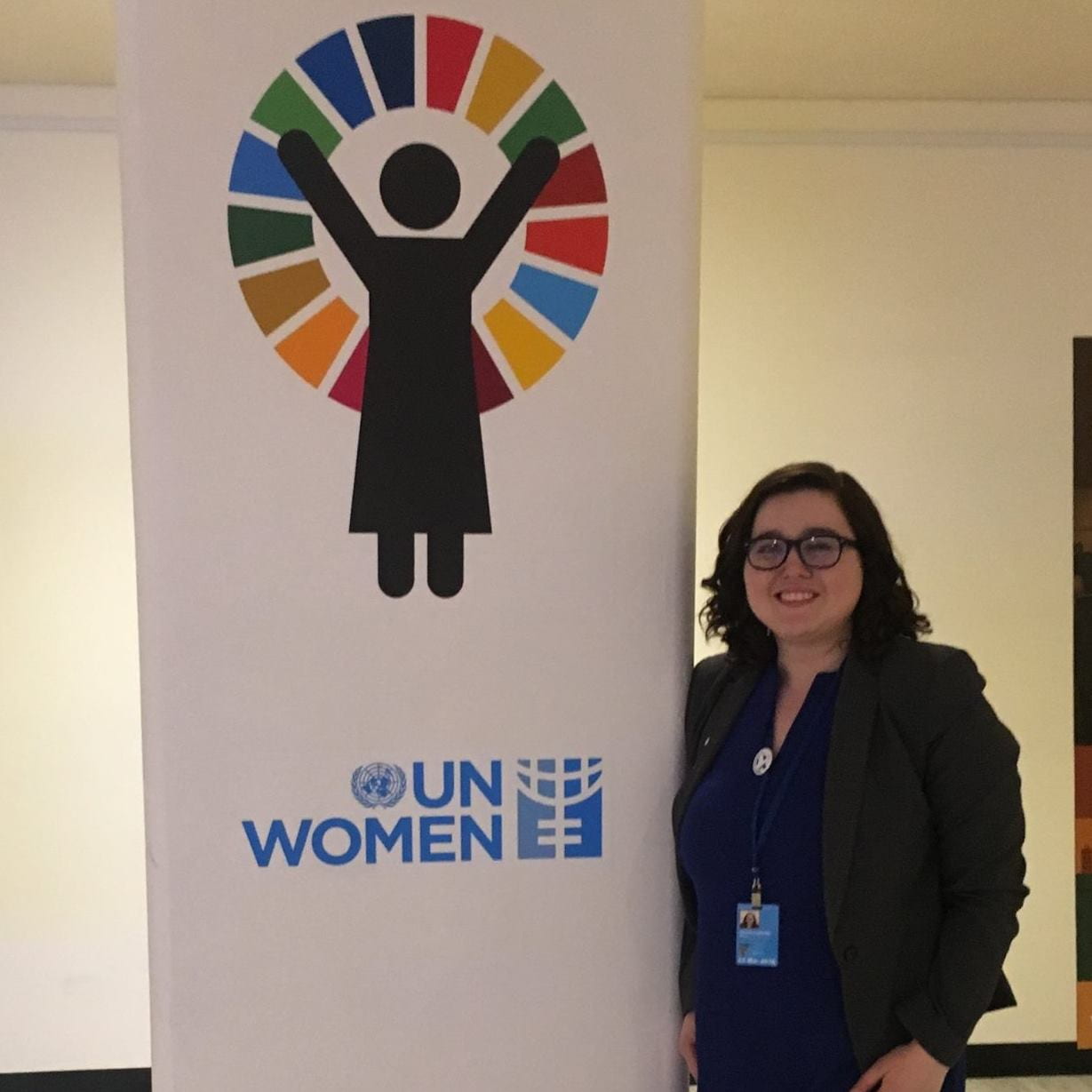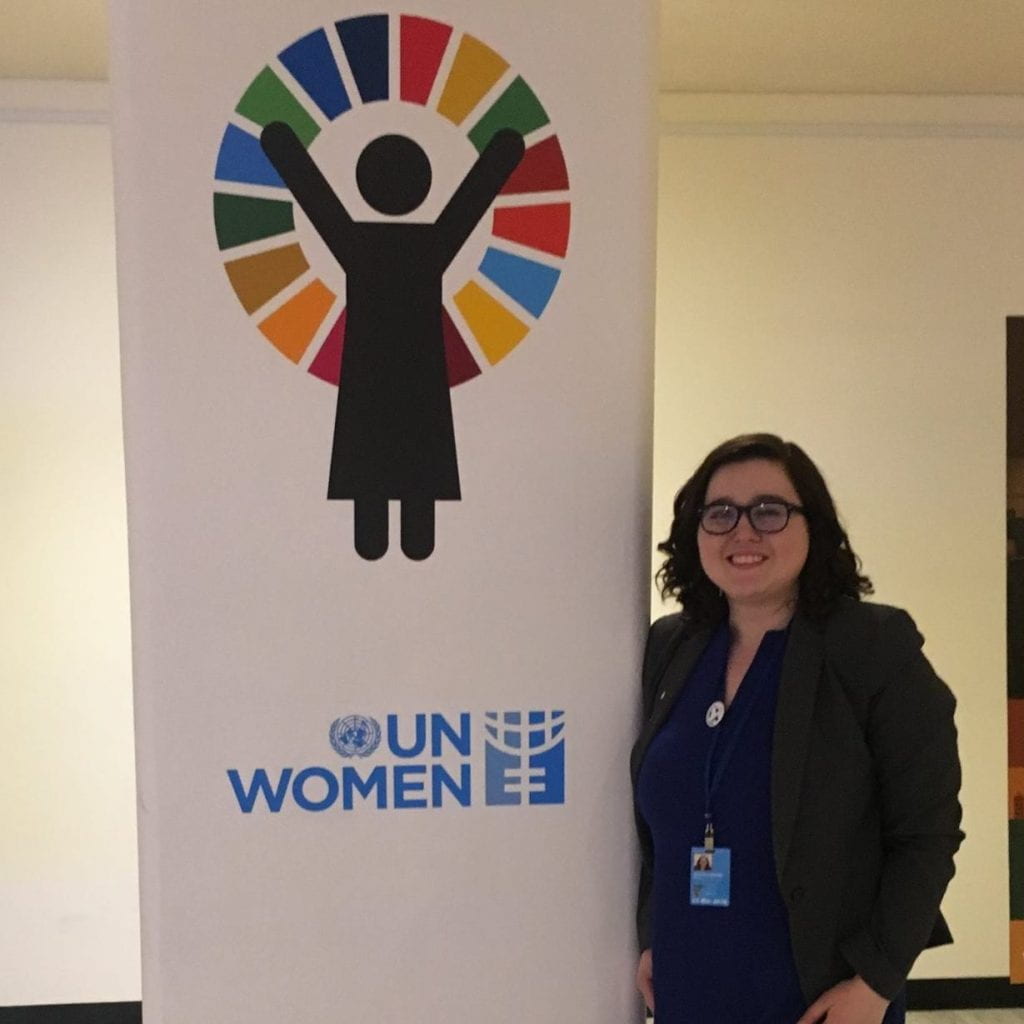By Alice Schyllander
History will be made on January 20th as Kamala Harris is sworn in as the first woman of color Vice President of the United States. Senator Kamala Harris is the nation’s first woman, first Black and first South Asian Vice President breaking many barriers. The inauguration of the Biden-Harris Administration represents an important opportunity milestone in U.S. history, and could represent an opportunity for global gender equality activists to push for the U.S. to strengthen its policies on gender abroad. This administration has already proposed an impressive slate of both domestic and foreign policies to address racial justice, gender equality, and LGBTQ+ rights, it is very possible that activists have the opportunity to push for this administration to adopt a more transformative approach to foreign policy. A Feminist Foreign Policy (FFP) has the power to transform U.S. foreign policy priorities to center those who have been most marginalized under the Trump Administration. A FFP would seek to center the experiences of communities historically marginalized by current and past U.S. foreign policies using a trauma-informed lens in the policy creation process. Current U.S. immigration policies force many asylum seekers to experience trauma while attempting to seek asylum, a community that by its very definition has undergone significant traumatic experiences. This is especially true of Central American LGBTQ+ asylum seekers who experience disproportionate harm in their countries of origin, in-transit through Mexico, and while undergoing the U.S. asylum process. A U.S. feminist foreign policy can transform the policy priorities of U.S. immigration policy to center the needs of LGBTQ+ survivors of violence who are seeking asylum status.
LGBTQ+ people in Northern Triangle Countries (Guatemala, El Salvador, and Honduras) experience high levels of violence and persecution. It is challenging to obtain accurate data on the levels of violence experienced by LGBTQ+ people in these countries due to lack of official data collection on this issue. However, several NGOs and international organizations have collected data on this topic. In a 2016 study, Northern Triangle countries were considered one of the most dangerous regions in the world for trans women. The high rates of violence are exacerbated by the lack of accountability for the perpetrators of violence. Cattrachas, a Honduran LGBTQ+ rights nonprofit, found in a study that of the 225 violent deaths of LGBTQ+ people recorded during 2008 to 2015 in Northern Triangle countries only 13 had resulted in a conviction. Many LGBTQ+ people in Northern Triangle countries choose to flee due to the high rates of violence and persecution. According to the United Nations High Commissioner for Refugees (UNHCR), 88% of LGBTQ+ asylum seekers and refugees from Northern Triangle Countries have experienced gender-based violence in their country of origin. Many LGBTQ+ people are left only with the option to escape in order to maintain their lives and physical integrity.
LGBTQ+ asylum seekers have been harmed by the Migrant Protection Protocols (the “Remain in Mexico” Policy) and the U.S.-Guatemala Asylum Cooperative Agreement (the Safe Third Country Agreement) enacted under the Trump Administration. The Remain in Mexico policy requires asylum seekers who have appeared at a port of entry at the U.S. Southern border to wait in Mexico while their case is being processed through the U.S. immigration system, instead of waiting in the U.S. as before. Vulnerable populations are supposed to be exempt from the Remain in Mexico policy, but LGBTQ+ asylum seekers are not exempt from the program. The U.S.-Guatemala Asylum Cooperative Agreement is a treaty that allows U.S. immigration officials to send Honduran and Salvadoran asylum seekers to pursue an asylum case in Guatemala, not allowing their asylum claims to be heard in U.S. immigration courts. LGBTQ+ asylum seekers are also not exempt from being sent to Guatemala, despite a lack of anti-discrimination policies for LGBTQ+ people and a limited capacity for a full and fair asylum procedure in Guatemala. Both policies return LGBTQ+ asylum seekers back to the same conditions of persecution and violence they were escaping in their home countries subjected Central American LGBTQ+ asylum seekers to additional trauma.
It is difficult to estimate exactly how many LGBTQ+ asylum seekers from Northern Triangle countries have been directly impacted by the Remain in Mexico policy. Cases from Northern Triangle countries made up more than half of the total 4,385 asylum claims for anti-LGBT persecution between January 2007 and November 2017 according to the US Citizenship and Immigration Services. It is difficult to estimate how many LGBTQ+ asylum seekers experienced violence or persecution while being forced to wait for an indefinite amount of time in Mexico. There is data on the rates of gender-based violence against LGBTQ+ asylum seekers on their journey through Mexico. In 2016 the UNHCR found that two-thirds of LGBTQ+ asylum seekers and refugees from Northern Triangle Countries reported experiencing sexual and gender-based violence in Mexico after they crossed the border at a blind spot. The risk for violence against LGBTQ+ asylum seekers has caused many Congressional lawmakers to inquire about the Remain in Mexico policy. Forty Congressional lawmakers have sent two letters to the Office for Civil Rights and Civil Liberties and the Inspector General at the Department of Homeland Security asking for clarifications about the Remain in Mexico policy for LGBTQ+ asylum seekers. In the second letter, congressional lawmakers included that there have been 340 public reports of rape, kidnapping, torture, and violent attacks against asylum seekers in the Remain in Mexico program from January to November 2019.
It is challenging to determine the level of harm the U.S.-Guatemala Asylum Cooperative agreement has caused LGBTQ+ asylum seekers due to a lack of data collection. Transfers are currently suspended due to the public health emergency of the COVID-19 pandemic beginning in March 2020. There were 939 Honduran and Salvadoran asylum seekers transferred to Guatemala under the US-Guatemala ACA between November 21, 2019 and March 16, 2020. Only 2% of the total number of transferees have applied for asylum in Guatemala. There have been no attempts by the Guatemalan government to work with LGBTQ+ rights organizations to coordinate and to provide information about available resources to LGBTQ+ asylum seekers transferred under this agreement.
When LGBTQ+ asylum seekers arrive at the U.S.-Mexico border nearly all of them have experienced gender-based violence and most are also recent survivors of violence. The policies of the Remain in Mexico policy and the U.S.-Guatemala Asylum Cooperative Agreement subject LGBTQ+ asylum seekers to more trauma by sending them back to conditions of violence, poverty, and persecution. The Biden-Harris Administration has the opportunity to create a humane asylum process for LGBTQ+ asylum seekers by ending both policies immediately upon entering office. A U.S. FFP can have a transformative impact on U.S. foreign policy priorities, by creating a humane and dignified immigration process that takes a trauma-informed approach.
Alice Schyllander is a second-year graduate student at the George Washington University in the Elliott School of International Affairs in the Master of Arts in International Affairs program concentrating in Global Gender Policy and International Law & Organizations. Alice has focused her studies and professional work on addressing issues of gender equality, gender-based violence, immigrant rights, refugee rights, and LGBTQ+ rights globally with a regional interest in Latin America. She has worked previously at the Interfaith Council for Peace and Justice, Planned Parenthood Action Fund, the Tahirih Justice Center, Vital Voices Global Partnership, and the Elliott School of International Affairs.


